Leadership Mastery: Exploring the Best Books About Leadership for 2024
11 Best Books About Leadership in 2024
Ever feel like the secret to outstanding leadership is locked in a book you haven’t read yet? I know the feeling, and you might be onto something! Leadership is a fascinating field that’s constantly changing and evolving. To be an effective leader, staying informed and up-to-date is key. I recently wrote an article about 12 leadership behaviors that drive success, and continuous learning is one of the top traits. Are you curious to learn more? Imagine flipping through the pages that could catapult you from a good leader to a great one.
Now, let’s ignite that spark of interest. We’ve scoured bookstores and the internet to compile the crème de la crème of leadership literature. These aren’t your average, run-of-the-mill books; they’re the best leadership books of 2024, each a treasure trove of wisdom waiting to be unlocked.
Trust me; your desire for transformative leadership is valid and achievable. With this handpicked selection, you’re not just reading but stepping into a realm of leadership enlightenment. These books are more than mere guides; they are your mentors in print.
Ready to take action? Dive into this curated list and equip yourself with the insights and strategies of the world’s most influential people. Turn the page, and let your leadership journey soar to new heights in 2024!
The 11 Best Books About Leadership: A 2024 Guide for Aspiring Great Leaders
1. Humble Inquiry: The Gentle Art of Asking Instead of Telling by Edgar H. Schein
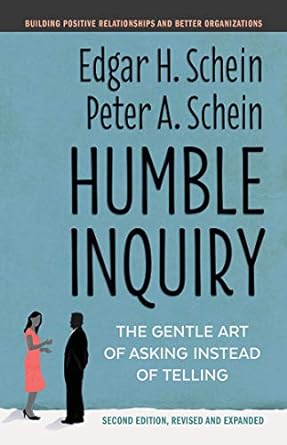
Overview: As a standout in the list of leadership books to read, this one teaches the value of humility in leadership, a crucial trait for becoming a better leader. It seems simple, but learning this trait took me a while and lots of trial and error. Once I started approaching team members and business challenges from a place of pure curiosity, it catapulted my career. This book will help you look through the lens of leadership differently.
Key Benefits:
- Promotes humility and inquiry in leadership roles
- Improves communication and team dynamics
- An essential read for leadership development
Pros & Cons:
- Pros: Offers a unique perspective on leadership, easy to digest
- Cons: More suited for beginners in leadership
2. Nine Lies About Work: A Freethinking Leader’s Guide to the Real World by Marcus Buckingham and Ashley Goodall
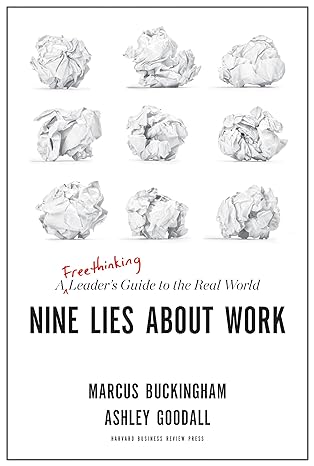
Overview: First and foremost, I’d like to say that this is one of the best titles for a book. The book is a compelling read that challenges conventional leadership traits, offering a fresh look at what makes an effective leader. One of the ideas that the author challenges is, “The best people are well-rounded.” I’ve found that my top performers know what they do well and lean into that. If they need help elsewhere, they’ll seek specialists in the area they lack confidence in.
Key Benefits:
- Debunks common myths about leadership and work
- Provides evidence-based insights for effective leadership
- A must-read for anyone in leadership positions
Pros & Cons:
- Pros: Innovative perspective, well-researched
- Cons: May contradict traditional leadership principles
3. Radical Candor: Be Kind, Be Clear, Be You by Kim Scott
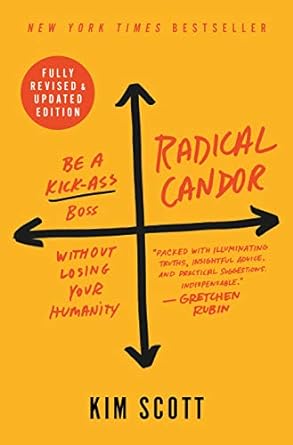
Overview: This popular leadership book explores the importance of clear and kind communication, a critical skill for successful leaders. If you want to become better at providing feedback, this is for you. There is an absolute art to giving feedback, and it’s not always fun, but it is necessary for any success.
Key Benefits:
- Enhances direct and empathetic communication
- Ideal for leaders looking to build trust
- Helps leaders become more effective in their roles
Pros & Cons:
- Pros: Practical advice, relatable anecdotes
- Cons: Can be challenging to implement in diverse work cultures
4. Pivot: The Only Move That Matters Is Your Next One by Jenny Blake
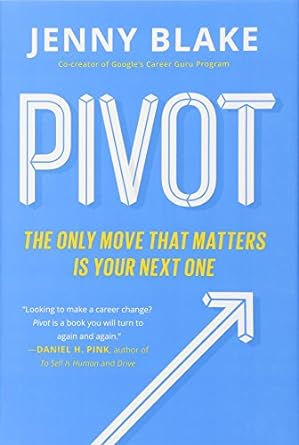
Overview: This book helps leaders face change, offering strategies for adaptability, an essential aspect of great leadership. The book is designed for those looking to make a career change, but the core principles can speak to anyone. For instance, the lesson about not waiting for opportunity is something that I believe every great leader will teach you. We often hang too much weight on opportunities that will just come to us. Most successful people will tell you they had to get out there and create the opportunity for themselves.
Key Benefits:
- Promotes agility in leadership decisions
- Useful for personal and professional pivots
- Helps leaders navigate uncertain times effectively
Pros & Cons:
- Pros: Actionable advice relevant to modern leadership challenges
- Cons: Best suited for those already in leadership roles
5. Emotional Agility: Get Unstuck, Embrace Change, and Thrive in Work and Life by Susan David
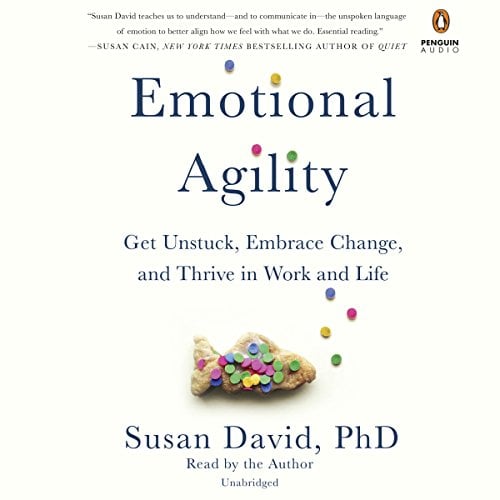
Overview: An essential book on leadership, it explores emotional agility as a vital skill for leaders, enhancing personal and professional effectiveness. We all know that our role can be challenging. As leaders, we have all sorts of responsibilities that we may not have realized that we initially signed up for. There have been stressful times in my career where I’ve had to show up not just for myself but for my team. Knowing how to be emotionally agile pulled us together, creating a stronger team in the long run.
Key Benefits:
- Boosts emotional intelligence and resilience
- Essential for managing personal and team emotions
- It is an excellent read for anyone aspiring to practice true leadership
Pros & Cons:
- Pros: Insightful and applicable across life domains
- Cons: Some concepts require deep introspection
6. Good to Great: Why Some Companies Make the Leap… and Others Don’t by Jim Collins
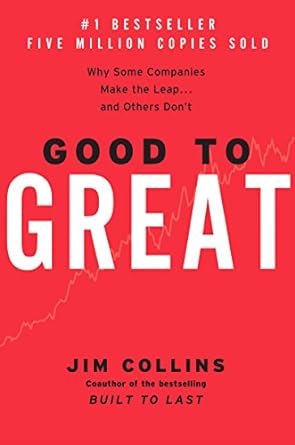
Overview: A seminal work in the list of the best leadership books, it provides insights into what transforms good companies into great ones. Level 5 leadership is a topic that is highlighted in detail in this book as well. We’ll dive into that more below, but in this book section, there is talk about owning the responsibility when things don’t go as planned and making sure you give credit to others when things are going great.
Key Benefits:
- Offers in-depth insights into successful business transformation
- Provides actionable strategies for leaders
- A must-read book for aspiring business leaders
Pros & Cons:
- Pros: Rich in research and case studies
- Cons: Some examples might feel less applicable to smaller businesses
7. The Leadership Challenge by James Kouzes and Barry Z. Posner
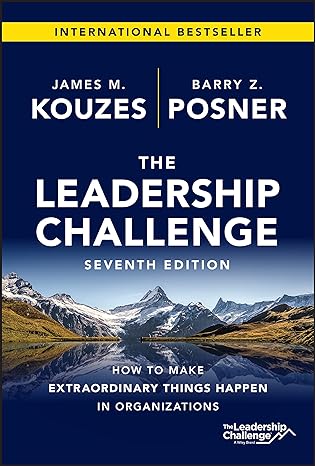
Overview: This book, a classic in leadership training, outlines the five practices of exemplary leadership, crucial for anyone aiming to become a great leader. There have been many practices that I’ve done throughout the years that have varying degrees of success. However, I firmly believe that to lead, your team needs to know where you stand. Whenever I work with a new team, I make it a point to let the team know who I am by articulating my values and beliefs and how they guide my actions. This introduction helps level set the approach I expect from myself and others.
Key Benefits:
- Details five critical practices for successful leadership
- Grounded in extensive research and real-world examples
- Ideal for both new and experienced leaders
Pros & Cons:
- Pros: Comprehensive and actionable
- Cons: May be overwhelming for beginners in leadership
8. The Effective Executive by Peter F. Drucker
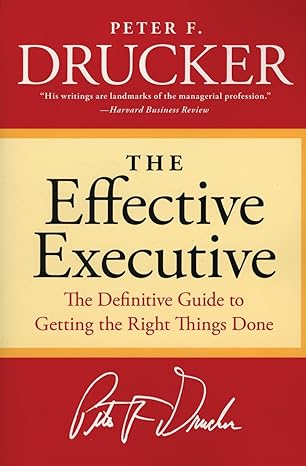
Overview: A timeless classic, this book offers invaluable advice to help you become an effective and successful leader in any organizational setting. We have all seen our peers “stay in their lane” and not look outside their business areas. Drucker talks about how to be effective; we need to look at our organization as a whole instead of just our silos. I’ve learned throughout my years that each business area is connected like the human body. If one area of the business can use some help, then it’s good for the company’s overall health.
Key Benefits:
- Teaches critical skills for decision-making and prioritization
- Timeless advice for leaders at all levels
- A foundational read for effective leadership
Pros & Cons:
- Pros: Universally applicable principles
- Cons: Some ideas may seem intuitive to seasoned leaders
9. Dare to Lead by Brené Brown
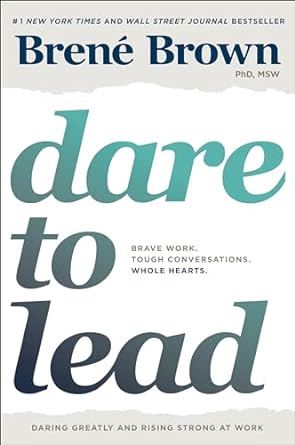
Overview: In this daring leadership book, Brené Brown encourages leaders to embrace their vulnerability as a strength, revolutionizing the traditional approach to leadership. In my opinion, this book takes many of the most important aspects of other teachings and puts them together refreshingly. This is a book that I would give to anyone, and I know they can pick something out of it that resonates with them.
Key Benefits:
- Advocates for vulnerability and authenticity in leadership
- Transformative for personal and professional relationships
- A refreshing take on leadership skills
Pros & Cons:
- Pros: Accessible and engaging writing style
- Cons: The concept of vulnerability may be challenging to implement in some corporate cultures
10. Anatomy of a Breakthrough: How to Get Unstuck and Thrive When It Matters Most by Adam Alter

Overview: Adam Alter’s book provides a fresh perspective on tackling personal and professional obstacles. It focuses on innovative strategies for breaking through stagnation and fostering significant growth. We’ve all been through the feeling of being stuck. The question is, how do you find your way through it? I’ve felt this way numerous times throughout my career and have had to get out of it. What I loved most about this book is that Adam reviews what he calls a friction audit to help you work through this and become more productive.
Key Benefits:
- Offers practical methods to overcome challenges
- Encourages personal and professional development
- Provides insights into achieving breakthrough moments
Pros & Cons:
- Pros: Actionable advice, relevant real-world examples
- Cons: Some readers may seek more focus on organizational contexts
11. Sparked: Discover Your Unique Imprint for Work That Makes You Come Alive by Jonathan Fields

Overview: This book by Jonathan Fields delves into discovering and leveraging one’s unique strengths and passions in the workplace, offering a pathway to more fulfilling work. Sometimes, we are just going through the motions daily. This is entirely normal, and I’ve found that every few months or years, I need to run an audit on myself and understand what is making me tick. This helps with newfound purpose and motivates you to keep pushing towards your goal.
Key Benefits:
- It helps identify personal strengths and passions
- Encourages alignment of work with individual values
- Inspires and motivates for greater job satisfaction
Pros & Cons:
- Pros: Insightful for personal growth, highly motivational
- Cons: May require introspective effort for practical application
What Didn’t Make The List?
Some books or topics didn’t make the list, but there is still some valuable information that can be gained for 2024 and beyond. Below, you will see some topics and books that you should feel free to explore as well.
Books on servant leadership. This is a term deeply explored in some of the best leadership books to read. It’s a paradigm shift in traditional leadership roles. It’s a style prominently featured in business books and self-help books, focusing on the leader’s role as a servant first, a concept that is largely a matter of conscious choice and a function of circumstance. This approach is exemplified in books like “Leaders Eat Last” by Simon Sinek and is often contrasted with more authoritative styles outlined in works like “The 21 Irrefutable Laws of Leadership.”
At its core, this type of leadership is about prioritizing the needs of others, especially team members, before considering one’s own. It’s a principle echoed in the “7 Habits of Highly Effective People” and “The Five Dysfunctions of a Team,” emphasizing collaboration, trust, and ethical use of power. This leadership style is not about diminishing authority but about redefining its use to empower and uplift others, resonating with the principles of primal and authentic leadership.
Books like “The 5 Levels of Leadership” and “Tribal Leadership” offer insights into how practicing servantship can be applied across different stages of a leader’s journey. They teach that effective leadership, especially in challenging circumstances like those faced by Navy SEALs or in complex business environments, requires a blend of empathy, active listening, and a commitment to the growth of individuals. This approach aligns with the idea that leadership isn’t just a title but a series of actions and attitudes to elevate others.
As these books reveal, servant leadership is a compelling read for anyone looking to become an effective and successful leader. It’s a leadership lesson that turns traditional hierarchy on its head, proving that even the best teams thrive under leaders who serve first. This book shows that this approach is not just a style but a journey towards more humane and effective leadership.
More On How ‘Level 5 Leadership’ Can Transform Your Approach to Leading Others?
‘Level 5 Leadership’, a concept introduced by Jim Collins in his influential book “Good to Great,” is a crucial insight into how leaders can evolve to lead others more effectively. This concept is considered one of the laws of successful leadership, distinguishing exceptional leaders from good ones. The book provides a detailed analysis of Level 5 leaders, characterized by a unique blend of personal humility and professional willpower.
Incorporating the principles of Level 5 Leadership can significantly aid in your journey to become a better leader. This concept is designed to help leaders understand the importance of self-effacing yet determined leadership. It’s about putting the organization’s needs above personal glory, a trait that resonates with the teachings of other leadership experts like John C. Maxwell and Patrick Lencioni. These leaders are effective and create lasting impacts, guiding their organizations through years of leadership challenges and successes.
Reading this book is essential for anyone looking to elevate their leadership skills. It unpacks the journey from a novice leader to a Level 5 leader, offering practical advice and insights. The book is an excellent resource for understanding the hard thing about hard things in leadership – balancing humility with relentless pursuit of goals. It’s an essential read that provides a deeper perspective on what it means to lead others, making it a standout among the best leadership books of all time. Through the lens of Level 5 Leadership, you can learn how to transform challenges into opportunities and guide your team towards more significant achievements.
Buyer’s Guide: How We Selected the Top 11 Leadership Books for 2024
In our quest to identify the best leadership books for 2024, we employed a comprehensive research approach. Our methodology was designed to ensure that the books we recommend are not only insightful and influential but also practical and relevant for today’s leaders. Here are the key steps and factors we considered in our research:
- Author Expertise and Recognition: We looked at each author’s credentials and reputation in the leadership field. Renowned authors like Kim Scott, Peter Drucker, and Brené Brown were given priority due to their proven expertise and contribution to leadership thought.
- Content Relevance and Timeliness: We focused on books that provide current and applicable insights into leadership challenges in today’s dynamic world. This included evaluating the books’ relevance to modern leadership issues like emotional intelligence and adaptability.
- Reader Reviews and Ratings: We analyzed reader feedback and ratings from various platforms. This helped us gauge the book’s impact and effectiveness in imparting leadership lessons to its readers.
- Pricing: The cost of each book was considered, ensuring that our recommendations cater to a range of budgets. We looked for books that offer great value in terms of content quality relative to their price.
- Unique Features and Insights: We identified books that offered unique perspectives or innovative ideas in leadership. Books that provided new frameworks, models, or approaches to leadership were given higher importance.
- Negatives or Limitations: We also noted any shortcomings or areas the books might lack. This included identifying biases, outdated concepts, or overly theoretical content that might reduce the book’s practical applicability.
- Support, Community, or Additional Resources: Books that offered additional resources such as online tools, communities for discussion, or supplementary materials were considered more favorable. This factor is crucial for readers who seek ongoing support or a more profound exploration of the topics.
- Endorsements from Leadership Experts: We also considered endorsements or recommendations from recognized leadership experts, which helped validate the book’s credibility and effectiveness.
By meticulously analyzing these factors, we have curated a list of the 11 best leadership books to offer valuable insights and guidance for aspiring and experienced leaders. Our guide is designed to help you choose the right book that aligns with your personal leadership journey and professional development goals.
Conclusion: Empower Your Leadership Journey with Our Top Book Recommendations
In summary, the 11 leadership books we’ve carefully selected and the honorable mentions stand out as a beacon for anyone looking to enhance their leadership skills. These books provide valuable knowledge, insights, and practical advice for leaders at any level. They cover various topics, from emotional intelligence and servant leadership to the hard truths about leading in challenging times. Each book is a treasure trove of wisdom, providing unique perspectives and innovative ideas crucial for leading in today’s fast-paced and complex world.
The benefits of delving into these books are manifold. They will equip you with the necessary tools to lead others effectively and inspire you to drive positive changes within your organization and community. By embracing the lessons these books offer, you can develop a more empathetic, resilient, and adaptive leadership style, positioning you to meet the demands of modern leadership.
As your guide through this selection, I bring a deep understanding of leadership dynamics and a commitment to staying abreast of the most impactful literature in the field. My recommendations are grounded in thorough research and a keen eye for books that make a real difference in the lives of leaders. Trust in this carefully curated list to be your companion on your leadership journey, helping you navigate the complexities of leadership with confidence and insight. Remember, the right book can inform you and transform you into the leader you aspire to be.
FAQ
What are the top 10 leadership books of all time?
That is very subjective, but classics like “The 7 Habits” and “Good to Great” consistently rank high.
What are the best books to read about leadership?
I believe it is best to focus on books relevant to your current challenges and goals for a personalized impact.
What is the number one rule of leadership?
There’s no one rule, but “servant leadership” and prioritizing people over profits resonate with many.
How can I improve my leadership skills?
Start with small, targeted actions based on insights from books and leadership resources.
Why you should read leadership books?
Reading opens doors to new approaches, helps you avoid blind spots, and fuels your growth as a leader.